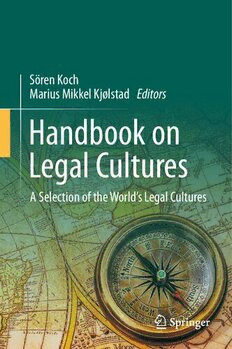
Handbook on Legal Cultures: A Selection of the World's Legal Cultures PDF
1170 Pages·2023·25.426 MB·English
Most books are stored in the elastic cloud where traffic is expensive. For this reason, we have a limit on daily download.
Preview Handbook on Legal Cultures: A Selection of the World's Legal Cultures
Description:
Cooperation across borders requires both knowledge of and understanding of different cultures. This is especially true when it comes to the law. This handbook is the first to comprehensively present selected legal cultures based on a very specific set of structural elements which can be found in all such cultures. Legal cultures are a product of and impacted by certain fundamental and commonly shared ideas on and expectations of the law. In all modern societies these ideas are to a certain degree institutionalized or at least embedded in institutionalized practices. These practices determine the way lawyers are educated and apply the law, how they engage with the ongoing internationalization of law and what kind of values they adhere to. Looking at these elements separately enables the reader to identify similarities and differences and to explain them contextually. Understanding these general features of legal cultures can help avoid misunderstandings or misinterpretations of foreign law and its application. Accordingly, this handbook is a necessary starting point for all kinds of legal comparative studies conducted by academics, students, judges and other legal practitioners.
See more
The list of books you might like
Most books are stored in the elastic cloud where traffic is expensive. For this reason, we have a limit on daily download.
